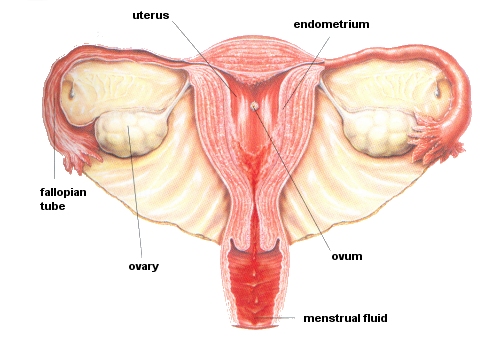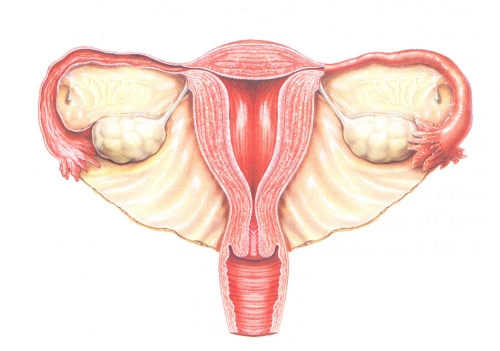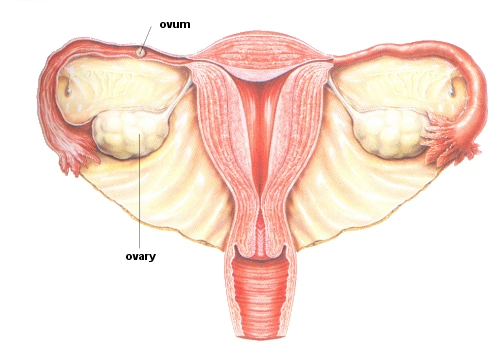Sex Hormones
Sex hormones play an important role in the development of secondary characteristics and also the menstrual cycle in women.
During puberty, FSH and LH (known as gonadotrophins) stimulate the ovaries in females to bring about the follwing effects:
- uterus, fallopian tubes and ovaries become fully functional
- ovulation and the menstrual cycle begins
- growth of pubic and axilliary hair
- glandular tissue in the breasts enlarges and develops
- increase in height and pelvic width
- increase in amount of subcutaneous fat
In boys, the same gonadotrophins are produced and stimulate the testes to produce testosterone. The effects of this are:
- growth of muscle and bone
- noticeable height increase
- voice breaks and larynx enlarges
- sexual organs develop
- seminiferous tubules become functional so that semen can be produced
- sperm production begins
Menstruation
In females, hormones play an important part in the preparation of the body for reproduction. The menstrual cycle which lasts approximately 28 days, can be divided into the following phases:
- Menstrual
- Proliferative
- Secretory
Menstrual Phase
For the first five days or so, progesterone produce by the corpus luteum enters the blood stream and the pituitary gland responds by producing less luteinising hormone. This in turn causes the sorpus luteum to break down, thus causing the levels of progesterone to fall. The endometrium stops retaining fluid and this starts to break down also. The resulting menstrual fluid contains extra mucus secretions, the cells lining the uterus, blood from broken capillaries in the endometrium and the unfertilised ovum.
Proliferative Phase
For approximately seven days, follicle stimulating hormone is produced in the anterior lobe of the pituitary which stimulates the follicles of the ovaries to produce oestrogen. The oestrogen stimulates the endometrium promoting growth of new blood vessels an dmucus-producing cells. At the end of the stage, ovulation occurs and a mature Graafian follicle ruptures, releasing a single egg which then travels along the fallopian tube towards the uterus.
Secretory Phase
The last phase is approximately 14 days in duration. Luteinising hormone is secreted by the anterior lobe of the pituitary gland stimulating the ruptured follicle lining to grow into corpus luteum - a temporary sturture formed as a result of this hormone on the ruptured ovaria follicle. The corpus luteum produces progesterone which stimulates the endometrium to retain fluid and produces mucus, make the passage of sperm easier through the reproductive tract. After ovulation, the egg can be fertilised within 8-24 hours. If it is not, the menstrual phase begins.



